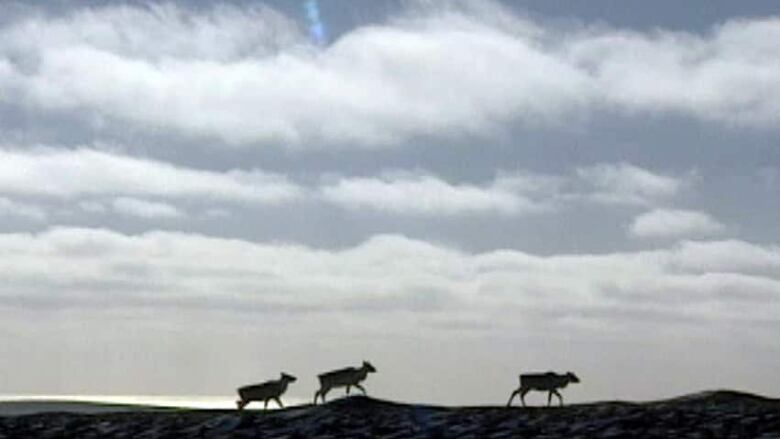Scientist calls for stop to aboriginal George River caribou hunt

A Quebec biologist says aboriginal hunting should be banned, or at least reduced, on the George River caribou herd in western Labrador.
Steeve Cote of Laval University, who specializes in studying the George River caribou and the neighbouring Leaf River caribou in Quebec, said there are fewer than 28,000 animals left in the herd.
In the late 1980's, there were 800,000 caribou in the herd.
Cote said hunting is a very risky activity with numbers so low.
"We don't really have any other choices right now. We should be discussing also reducing or maybe even stopping aboriginal hunting on this herd."
Cote acknowledged that such a ban would be difficult,but he noted that aboriginal groups elsewhere, including in western Canada, have agreed to stop hunting caribou in other areas where populations have been low.
Herd decline still a mystery
Cote said biologists have been at a loss to to explain why the George River caribou herd has been in freefall.
He said researchers have been examining the effect of black bear and wolf predators on the herd.
Another theory has proposed that the high numbers of caribou at the peak of the herd's population ultimately led to its downfall.
"So that's 800,000 mouths to feed, times this by four for the number of feet trampling the tundra. So it had an impact on the plants," said Cote. "And plants recover very slowly in the Arctic and in this region."
Cote said the habitat in western Labrador could take decades to recover from that much damage.
Cote said he doubts that hunting started the decline of the George River caribou herd, but he said that the governments of Newfoundland and Labrador and Quebec permitted high levels of hunting on the herd while the population was falling rapidly, which may have contributed to low numbers.












_(720p).jpg)


 OFFICIAL HD MUSIC VIDEO.jpg)
.jpg)



























































































